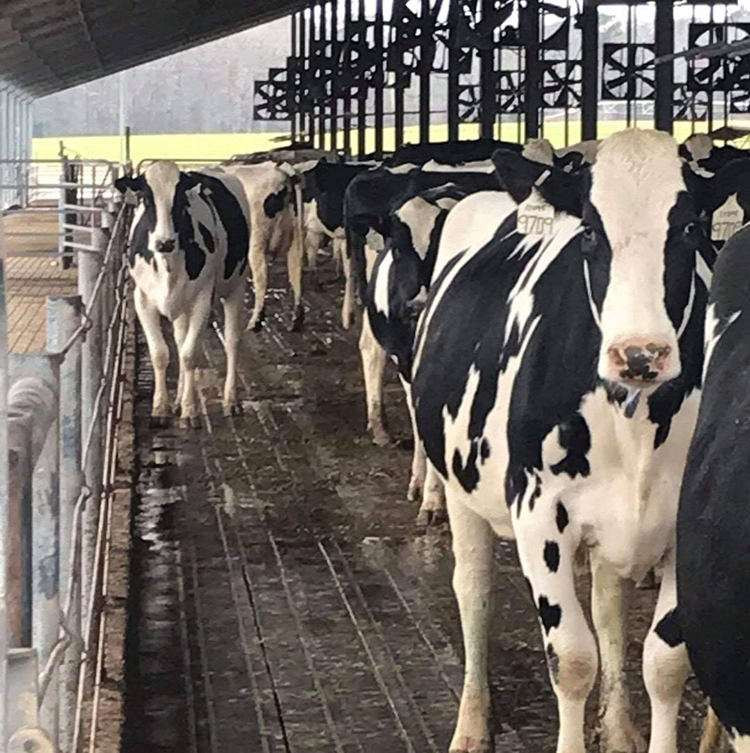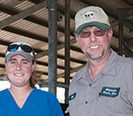
Each year, we go through rain spells and dry spells, hot spells and cold spells. When it is cold, we are thinking about how nice hot weather would be, and when it is hot, we dream about how good that cold weather felt. It’s just how the world works. We always want what we don’t have. Here in Georgia, it has been in the high 90s and as dry as I have seen it in a really long time. We are really hoping for some rain soon.
While we can’t fix the weather, we can do our best to help our cows thrive through the heat. Some of the main things we really like to focus on during the hottest months of the year include: Far-off dry cows, close-up dry cows, and cows during the first 14 days after calving. The heat impacts these groups the most. We tend to see more retained placentas, metritis, and other fresh cow issues during the hottest parts of the year when the cows are enduring heat stress. Knowing we are up against these issues, we like to take as many precautions as possible to lower the number of cases.
Right now, our close-up and far-off dry cows are outside, but soon they will be moved into the freestall barn. This will help cut down on heat stress and also reduce related issues linked to how they transition into the milking herd after calving. Calving takes place in a cool bedded-pack barn that features fans, sprinklers at the feedbunk, feed, and water available all the time. Taking them off pasture also gives us the opportunity to feed them the exact nutrients they need without guessing what or how much they might be consuming in the pasture.
We have had a few brush fires around us lately. We are breaking records here and there with the heat. Usually we don’t see this type of heat until the end of July and August. We are trying to be proactive managing heat stress in our herd. We are hoping for a little cooler weather and praying for a little rain, too.

Mark and Caitlin Rodgers are dairy farmers in Dearing, Georgia. Their “Father and Daughter Dairy Together” column appears every other Thursday on HD Notebook. The Rodgers have a 400-cow dairy that averages 32,000 pounds of milk. Follow their family farm on Facebook at Hillcrest Farms Inc.








